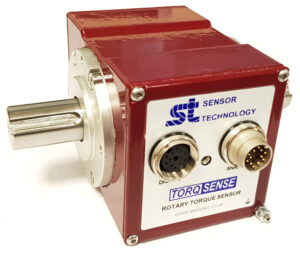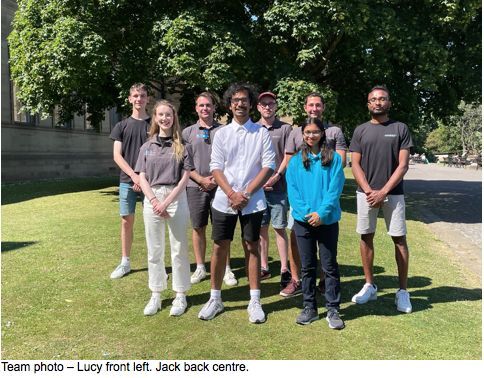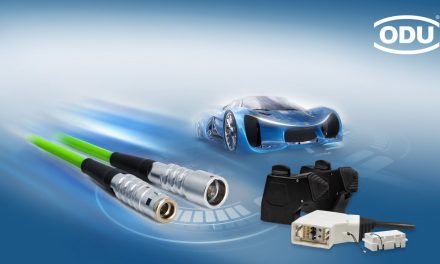Student engineers at the University of Sheffield have turned this year’s biggest negative into a huge positive, with its Eco Motorsport team using a newly launched torque sensor to develop a computer simulation tool for predicting electric cars’ energy efficiency. We asked team members Lucy Edwards and Jack Willis to bring us up to speed…
Editor: It’s been a tough year for everyone, but engineering is about problem solving. What have you been doing?
Lucy Edwards: Covid–19 has certainly upended things this year, but our team has turned this into a fantastic opportunity for long term planning and R&D. For instance, we have been developing our own computer simulation tools for predicting our electric vehicle’s (EV’s) energy efficiency and competition score for the 40 minute/15km Shell Eco Marathon competition run. For context, EVs in this competition achieve upwards of 800 km/kWh, whereas the EVs on the road today may achieve only 15 km/kWh (at the same 25 kph).
Editor: Sounds impressive. Was this part of your studies?
Jack Willis: The project is extra-curricular and provides a great opportunity to apply what we’ve learnt in lectures in a practical context. To build this tool, we used our knowledge of engineering theory to create a mathematical representation of all the energy losses present in the car. A key piece of data was the motor efficiency curves. To derive these, we developed our own in-house, dual-purpose powertrain test rig and motor dynamometer, based around an SGR TorqSense from Sensor Technology.
Editor: What is an SGR TorqSense and what did it bring to your party?
Jack Willis: For us, the main advantage of the SGR is the small package size, excellent performance and accuracy available in such an easy-to-use device. This should allow us to gather our final results far quicker and less laboriously.
Editor: So you ran lots of tests and mapped out the motor’s efficiency?
Jack Willis: Yes, with manufacturing and systems integration underway, we plan to use the data to update our predictions for the best match to real world results. It also enables us to test our powertrain and control electronics under sustained load, allowing us to mimic the load profile of a full 40-minute competition run – thus reducing the likelihood of failure at an event.
Overall, this will give us a fast and intuitive route to performance optimisation, at a fraction of the cost of a trial-and-error approach where multiple prototypes are built and compared.
Editor: Please tell me more about the Shell Eco Marathon competition.
Lucy Edwards: The event has been running for many years. It brings together university teams from across Europe to compete to push the boundaries in electric vehicle technology and performance, helping to drive advances in EV design in industry.
Teams have to design and build their own electric cars and motor controllers in-house. Typically, powertrains are based on either a brushless DC, or PMSM motor – and complex control algorithms are needed for precision control.
Jack Willis: This requires custom electronics to be produced and, in this design phase, the team is able to maximise efficiency through the use of low power loss MOSFETs, and careful component selection.To validate the effect of these choices, the controller is included in the motor testing that is done on each teams’ entry. In effect, the capabilities of each piece of hardware are quantified.

Editor: How will all this work benefit you at the next competition?
Lucy Edwards: With these new custom tools and hardware, along with full systems testing, we are confident we will post a well simulated, validated and competitive competition score. Of course, that is once COVID-19 restrictions allow us to ramp up manufacture and run the car.And we should also highlight the value of collaboration with partners such as Sensor Technology. Their wealth of technical knowledge, resources and experience is beyond value to the team.
Editor: Finally, Lucy, can you tell us what encouraged you into engineering and what your longer term ambitions are?
Lucy Edwards: At school I had always enjoyed sciences, in particular physics, as I loved being able to explain the world around me and find out how things worked. However, the main thing that drew me to engineering was the ability to apply this knowledge creatively to solve real-life problems, especially related to sustainability.
My involvement with Sheffield Eco Motorsport has allowed me to build on my knowledge of electric vehicles whilst also getting hands–on experience with design and manufacturing. And it has been immensely rewarding to see the parts we have designed in CAD come to life.
In the future, I hope to build on my experience with Sheffield Eco Motorsport and drive forward sustainable transport solutions in industry.
Article provided by Sensor Technology



